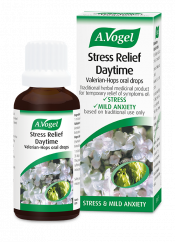An introduction to symptoms of depression
The expressions ‘I’m so depressed’ or ‘I’m feeling depressed just now’ are commonplace in today’s society. However, when these words are uttered, often, we are not being medically accurate.
Depression is a mental health condition which requires careful diagnosis and treatment from a doctor. On the other hand, the bouts of low mood people experience from time to time are to be expected as part of life’s ups and downs.
It is important to be able to tell these two conditions apart. Doctors do this by taking time to look into all of the symptoms experienced.
Sadness or feeling down
This is the most obvious symptom of depression. However, it is also the description one might use when one is feeling a bit ‘fed-up’ because of low mood.
We all have had days or periods in our lives when we feel a bit ‘blue’ or less positive than usual. These are usually normal reactions to the problems we face or stress. If we are unable to shake off these feelings, we might describe ourselves as feeling a bit down or low in mood.
People suffering from depression, however, experience a greater degree of sadness outside the usual boundaries of normality which can last for weeks without any improvement. Some have described it as being in a dark tunnel, with no means of escape.
They may find it difficult to remember the last time they were happy and it seems as though there will be no end to the misery. The feeling cannot be alleviated, even with good news or when circumstances improve. If the misery becomes very intense, people may begin to consider suicide.
De-motivation
Depression can lead to feelings of de-motivation. Interest is lost in things, events and people around, giving rise to a loss of pleasure in activities that were once interesting and exciting.
People suffering from this symptom of depression may start to feel guilty, worthless or rejected. Sufferers may convince themselves that no-one cares about them or wants to see them, that they shouldn’t venture out of the house, even to the supermarket.
Everyday activities, such as going to work or a visit to the shops, can become a major exercise for a depressed person.
Changes in weight or appetite
Depression affects everybody differently, but weight and appetite changes are often significant symptoms. Some find that they lose all interest in food with rapid weight loss, while others crave and binge on sweet or fatty food, causing their weight to increase.
It is important to consider significant, unexpected or rapid weight changes that have occurred recently, particularly if they are unintentional, as this, together with other symptoms, may indicate that you are experiencing more than just an episode of low mood .
Changes in sleep pattern
Many studies have shown a correlation between sleep and mood, and so it is no wonder that people suffering from depression are also likely to notice changes in their sleep pattern.
For some, this may take the form of insomnia with difficulty falling or staying asleep. This results in sufferers spending many hours tossing and turning in bed. Another symptom of depression can be waking up much earlier than usual (around 4 to 6 am) for no obvious reason – this is known as ‘early morning wakening’.
On the other hand, some people with depression find that they sleep too much and have difficulty waking in the morning. Despite this, energy levels are low and staying awake for a whole day can be difficult.
Of course, there are other reasons why people find they can’t sleep well. This includes low mood, stress, worry or anxiety. Sleep is very important for your health, so if you are having any difficulty getting good and restful sleep at night, it is worth taking the time to look into the cause and finding an appropriate solution.
Addiction
Addiction is often considered a separate condition to depression but the two often go hand in hand as one can make the other worse. The most common addiction is to alcohol. Due to its depressant action on the nervous system, whilst helping temporarily, it worsens the problem in the long-term.
Addictions can also make a person act recklessly, deliberately putting themselves in dangerous situations leading to a temporary boost in self-esteem.
If you are suffering from any kind of addiction, seek medical advice.
Mood swings
Mood swings can be part and parcel of normal mood. There are a number of causes including fluctuations in hormones such as seen in pre-menstrual syndrome and during the menopause.
Significant mood swings, feeling utterly down at one point then elated the next, is a sign or symptom of a type of depression known as manic depression. These mood swings are completely out of control and unpredictable, and cause a person to act ‘out of character’ or in ways not normally expected in society.
Mood swings can lead one to go from having very high levels of self-esteem, confidence and creativity to a state of complete misery, with feelings of worthlessness, apathy and total absence of confidence.
Both states can be dangerous - a person feeling ‘high’ may feel that nothing can harm them, causing them to put themselves in dangerous situations to try and prove their point. During a ‘low’ period, the same person often considers suicide.
If you are experiencing these symptoms, it is important to seek medical attention so that mood swings do not become extreme and life-threatening.








